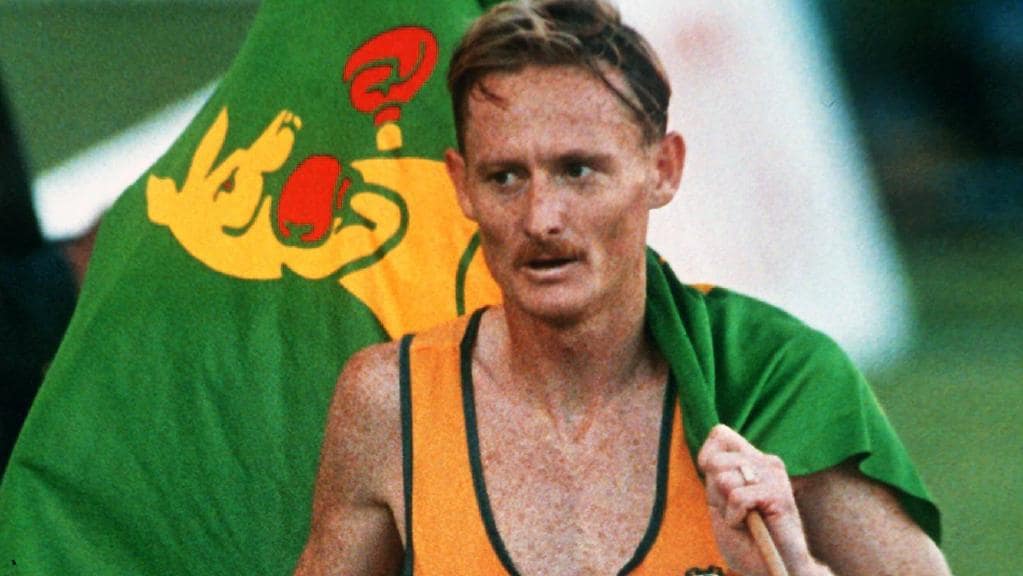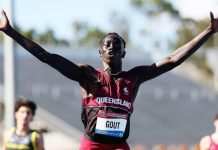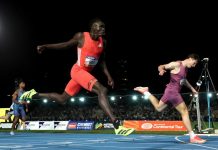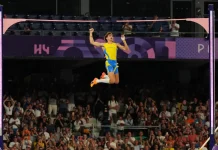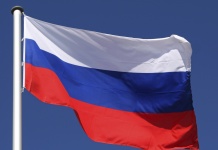Can it really be just a few months (spoiler: yes, it can) since many of us were aghast at World Athletics’ decision to trim formats to fit Diamond League meetings into a 90-minute television window.
In those pre-coronavirus days, the decision to defenestrate some beloved events – the 5000 metres, the steeple, the 200, the triple jump and even the discus throw, that classical symbol of athletic form since ancient Greece and the original Olympic Games – provoked outrage.
Now, as Covid-19 works its insidious way around the world, it’s not so much a narrower window athletics fans are worried about, more a case of whether any light is visible at all. Echoing Andrew Lloyd’s classic cry of “bugger the silver: let’s go for gold” on his way to victory in the 1990 Commonwealth Games 5000 metres, it’s a case of bugger the French windows: I’d settle for any chink of brightness in the dark.
Optimism, right now, is to believe, as Leonard Cohen put it in Anthem, there is a crack in everything, that’s how the light gets in.
When the Japanese Prime Minister and the president of the International Olympic Committee acknowledge in the same week that the Tokyo 2020 Olympics are no certainty to take place on the revised 2021 dates, you have to think that the international sporting calendar is now more aspirational list than fixed schedule.
There is an inverse relationship between the internationalism of an event and its likelihood of going ahead. When partisan boycotts of the Olympics, for example, reached a peak with the tit-for-tat boycotts of Moscow 1980 and Los Angeles 1984, internationalism was the Olympic Games’ greatest strength. Against a worldwide pandemic, however, the very same quality may prove to be its greatest weakness.
For a full Olympics to go ahead next year, Covid-19 must have reached, and gone through, a majority of the 200-plus countries normally attending. Even to get countries and athletes enough to validate the Carl Lewis observation of boycotts that, once the starting gun goes, people talk about who is there, not who isn’t, will require that few significant nations are absent. If it looks like that cannot happen, then the Games are off: there is no room for another postponement.
So, if Thomas Bach and Shinzo Abe are singing the same symphony on the Olympics, where does that leave lesser international events like, say, the world cross-country championships, which this week marked 300 days to go.
Both the world cross-country and the world indoor championships (which were postponed for a year) are now scheduled for March 2021. The indoors are in the Chinese city of Nanjing, the cross-country, of course, is at the famous Mt Panorama circuit in Bathurst.
Forget the indoors for a moment. Being in China, they seem likely to go ahead if the Chinese government says so. Shortcomings, should there be any, will be largely irrelevant.
I remain optimistic on the world cross-country, too. Indeed, a best-case scenario is that the championships will offer world-class competition at a time when the athletic world will be desperate to see it. With limited, or no, competition for distance runners from now until northern hemisphere spring 2021, the world cross-country may offer an invaluable opportunity for athletes to come out of an artificially prolonged build-up to test their progress.
For that to happen, however, Australia will have to be ready to accept teams from all over the world. And for that to happen, in turn, the pandemic will have to be over, or at least contained. Right now, Australia is closed for visitors, and parts of Australia are even closed to all other domestic travellers. A lot needs to change before March 2021: hopefully, a lot will change.
More generally, for now the changes in athletics are all heading in the wrong direction. The only thing that is growing is virtual competition, the latest example of which came this week with the revelation of the format for Oslo’s Bislett Games Diamond League meeting, re-badged this year as the ‘Impossible Games’.
Fittingly, for a meeting over which he has had a great influence over the years, the centrepiece event is named after Maurie Plant, who died late last year. The Maurie Plant Memorial Race will see two teams in remote locations race over 2000 metres. The Ingebrigtsen brothers will run in Bislett stadium, a Kenyan team led by world 1500 champion Timothy Cheruiyot will go round in Nairobi.
It will be five to run, three to count, with aggregate times deciding the winner. Underplayed is the fact that Oslo is at sea level, Nairobi is just short of 1800 metres above. There will also be a “world record” attempt by Karsten Warholm in the 300 metres hurdles and another pole vault special, this one featuring Mondo Duplantis and Renaud Lavillenie.
The whole thing is labelled “a showcase (for) the innovative spirit of athletics with a series of set-piece exhibition events.”
Which it no doubt will be. Innovation and exhibition events are pretty much the only items on the athletic menu currently. They’re as welcome as the artisanal chocolates on the pillows at a 5-star hotel, too.
But just as with the chocolates, it helps if you’ve had a good dinner first and what we are crying out for right now is a good dinner.
End.
The countdown is on to the World Athletics Cross Country Championships Bathurst 2021


